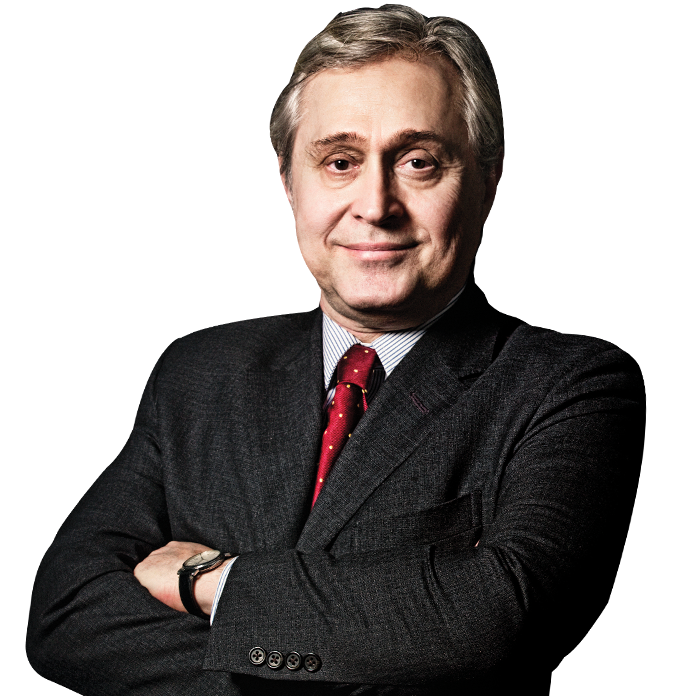Since the September 12 Constitution, HSYK (The Supreme Board of Judges and Prosecutors) or the independence of judiciary has never been off the agenda of politics.
The essential issue in the 2010 referendum was also the structure of the judiciary and its independence.
While the discussions related with the judiciary continued after the referendum, TESEV had held a round table meeting on the HSYK matter in the autumn of 2012. Ahmet İnsel and Mithat Sancar had participated in this meeting with their academician titles, while Yücel Sayman participated as the ex-President of the Istanbul Bar Association. Representatives from YARSAV and the Democrat Judiciary, and HSYK’s strong name, the First Head of Department, İbrahim Okur, were in the ranks of the participants. I had chaired the meeting.
According to the result report of the meeting, I had written as follows related to after 2002:
“It’s possible to talk about a dual situation or function from the point of judiciary. On one hand, the judiciary had turned into the politically qualified referee of the political issues with an intensity, which exceeds its own caliber and frame.
On the other hand, in order for these cases to be operated, extraordinary authorities given to judiciary with the specially authorized courts and prosecutors arrangements had transformed the judicial institution and its actors into powerhouses.
The meaning of becoming a power is obvious; The Judiciary-politics relation, depending on the place, court and period, had advanced sometimes towards transformation and sometimes as a resistance against transformation, in a way that pushes the limits of law and legislation, and at least created a strong opinion between the public opinion that this is as such.
Within this frame, the topics like “who” are these prosecutors and judges, “how” does the specially authorized courts and prosecutions work, and whether they exceed their limits or not, had become important argument matters. Especially in the first period until 2010, higher judiciary and HSYK’s structure, which is formed of old distinguished politicians, had been described as the biggest obstacle in the transformation period’s way by the political rulership. The promotion and assignment enactments that are prepared by HSYK and many attempts of HSYK directed at the legal procedure and actors will be paving the way for serious tensions between the institution and political rulership that surrounds the whole country.
Thus, from the viewpoint of the government, the 2010 Constitution alterations had carried the objective of changing the structure of HSYK and higher judiciary and breaking the resistance that is formed there. With the claim of overcoming the judiciary obstacle in the way of transformation and getting rid of the guardianship over the higher judiciary, and with a text they prepared in a frame that is based on this claim, the AK Party rulership had made constitutional amendments and had taken this amendment to a referendum.
The constitution’s amendment and the adjustment law that follows it had caused important changes in HSYK’s structure. Similar to how it happens in other high courts, the rule of designating the members of this council via an election held between judges and prosecutors had been accepted.
The referendum period and council elections had been experienced in a climate, in which different tendencies within the judiciary had been organized politically via associations or an informal frame, parallel to the power balance and polarizations in the country. HSYK, being directly designated by the judges’ and prosecutors’ votes, had made the trio group, which is described as YARSAV, Democrat Judiciary and government axis, prominent. And the lists created by these groups had competed and in the end, the list from the Ministry of Justice had won. While this result had been described as a democratic and natural normalization and transition by a segment, the government’s retaining of HSYK by affecting the elections was interpreted by YARSAV and the Democrat Judiciary as the Fethullah Gülen congregation’s overtaking the supervision in the higher judiciary.
In other words, the politicization discussion hasn’t changed; just the sides had switched places in the discussion…”
Today, we are at another phase of a similar discussion.
The issue is not just the intervention of enforcement in the judiciary, but at the same time, the issue is the limits and structure of the judiciary. October 12 is not only important in the sense of the Gülen congregation – Rulership fight, or to be more precise, in the sense of the Gülen congregation threat, but it is important concerning the future and the settling in of the merit principal.
It would be beneficial to remember this.




















